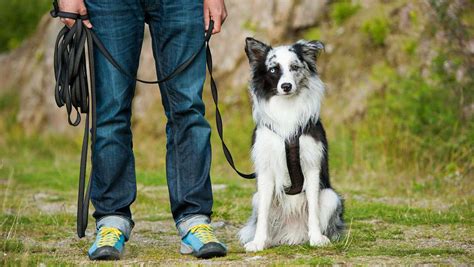Find the best dog training methods and facilities. Evaluate trainers’ qualifications and client reviews. Consider cost and schedule a consultation for personalized training packages.
Understanding Your Dog’s Needs
When it comes to choosing the best dog trainer for your pet, it is essential to first understand your dog’s needs. Dogs are unique individuals with their own personality, behavior, and training requirements. Start by observing your dog’s behavior and identifying any problematic issues that need to be addressed. Some dogs may have separation anxiety, while others may exhibit aggression towards other dogs or anxiety in certain situations.
It is important to consider your dog’s breed and temperament when understanding their needs. Certain breeds may require specific training techniques or exercise routines in order to thrive. Additionally, some dogs may have a history of abuse or trauma, which can impact their behavior and training needs.
Take the time to observe and analyze your dog’s behavior in different environments and situations. By understanding your dog’s unique needs and challenges, you can effectively choose a dog trainer who specializes in addressing those specific issues and can provide the best training program for your beloved pet.
Researching Different Training Methods
How to Choose the Best Dog Trainer for Your Pet
When it comes to finding the best dog trainer for your pet, one of the most important factors to consider is the training methods that the trainer uses. Not all training methods are created equal, and it’s crucial to research and understand the different approaches that a trainer may use to ensure that it aligns with your dog’s needs and your own training philosophy. Whether you’re interested in positive reinforcement, clicker training, or another method, it’s essential to thoroughly research and understand the different training methods available.
Before choosing a dog trainer, take the time to educate yourself about the different training methods that are out there. Look for reputable sources of information, such as books, websites, and professional organizations, to learn about the various approaches to dog training. Understanding the principles and techniques behind each method will help you make an informed decision when selecting a trainer for your pet.
Don’t be afraid to ask potential trainers about their training methods and how they approach different behavioral issues. A good trainer will be transparent about their practices and be able to explain their methods in a way that is easy for you to understand. By thoroughly researching different training methods and asking the right questions, you can ensure that you find a dog trainer who uses the approach that best suits your pet’s needs and your own preferences.
Evaluating Trainer’s Experience and Qualifications
When choosing a dog trainer for your beloved pet, it is essential to thoroughly evaluate the trainer’s experience and qualifications. This will ensure that you are entrusting your furry friend in capable hands. Firstly, look for a trainer who has extensive experience working with a variety of dog breeds and behavioral issues. A seasoned trainer will have the knowledge and skills to address your pet’s specific needs effectively.
Furthermore, consider the trainer’s qualifications and credentials. Look for certifications from reputable organizations, such as the Certification Council for Professional Dog Trainers (CCPDT) or the International Association of Canine Professionals (IACP). These certifications demonstrate that the trainer has undergone rigorous training and has met certain standards of expertise in the field of dog training.
It is also important to inquire about the trainer’s approach to training and their methods. A qualified trainer will use positive reinforcement techniques and will prioritize your pet’s well-being throughout the training process. Avoid trainers who rely on harsh or punitive methods, as these can have long-term negative effects on your pet’s behavior and overall well-being.
Assessing Training Facility and Environment
When choosing a dog trainer for your pet, it’s important to assess the training facility and environment to ensure it is conducive to learning and provides a safe space for your furry friend. The training facility should be clean, well-maintained, and free from any hazards that could pose a risk to your dog’s safety. Additionally, the environment should be structured in a way that promotes positive reinforcement and effective training techniques.
Furthermore, it’s important to consider the size of the training facility in relation to the number of dogs being trained at once. Overcrowding can lead to distractions and make it difficult for the trainer to provide individualized attention to each dog. A spacious and organized facility allows for a more focused and productive training session for your pet.
Lastly, take note of the overall atmosphere of the training facility and environment. It should be welcoming and comfortable for both you and your pet. A positive and nurturing environment can greatly contribute to the success of your dog’s training experience and make the process more enjoyable for everyone involved.
Reading Client Testimonials and Reviews
When looking for the best dog trainer for your pet, it is important to read client testimonials and reviews to get an understanding of the experiences of others. These testimonials and reviews provide valuable insights into the trainer’s methods, effectiveness, and overall satisfaction of the clients. By reading through these, you can gain a better understanding of the trainer’s approach and success rate with other pets.
It is essential to look for specific details and experiences shared in the testimonials and reviews. This can include the progress of the pets, the behavior changes observed, and the overall satisfaction of the clients. Look for testimonials that resonate with your own goals and concerns for your pet, as this can give you a better idea of what to expect from the trainer.
Additionally, consider the reliability and credibility of the testimonials and reviews. Look for trainers who have consistent positive feedback and constructive criticism that has been addressed. By assessing the authenticity of the reviews, you can ensure that you are making an informed decision when choosing a trainer for your beloved pet.
Considering Cost and Training Packages
When it comes to finding the best dog trainer for your pet, one important factor to consider is the cost of the training and the different training packages available. While it may be tempting to simply choose the cheapest option, it’s crucial to evaluate the value you’ll be getting for your money. Some trainers may offer a variety of packages with different pricing tiers, each including different levels of training and support.
Before making a decision, it’s important to carefully consider your budget and what you’re willing to invest in your pet’s training. Keep in mind that the cost of the training should reflect the quality and expertise of the trainer, as well as the effectiveness of the training methods being used.
Additionally, it’s important to inquire about any additional costs that may arise during the course of training, such as additional training sessions, special equipment, or follow-up support. By carefully considering the cost and training packages available, you can ensure that you choose a trainer that offers the best value for your investment in your pet’s well-being.
Scheduling a Consultation with the Trainer
When it comes to finding the best dog trainer for your pet, scheduling a consultation with the trainer is an important step in the selection process. This initial meeting allows you to interact with the trainer and ask questions to determine if they are the right fit for your dog’s needs. During the consultation, you can observe how the trainer interacts with your pet, assess their training methods, and gain insight into their experience and qualifications.
Additionally, scheduling a consultation gives you the opportunity to discuss your pet’s specific needs and behavior issues with the trainer. This allows the trainer to assess your dog’s temperament and develop a personalized training plan that meets their requirements. It also provides you with the chance to communicate your training expectations and goals, ensuring that the trainer understands what you hope to achieve through their services.
Overall, scheduling a consultation with the trainer enables you to make an informed decision about whether they are the right fit for your pet. It allows you to evaluate their approach to training, develop a rapport with the trainer, and gain a better understanding of the training process. By taking the time to schedule a consultation, you can ensure that you find a trainer who is not only qualified, but also capable of meeting your dog’s specific needs.
Frequently Asked Questions
What qualities should I look for in a dog trainer?
Look for a dog trainer who is experienced, certified, and uses positive reinforcement training methods.
What should I ask a potential dog trainer before hiring them?
Ask about their training methods, experience with your dog’s breed, and if they have any certifications or accreditations.
How can I tell if a dog trainer is reputable?
Check for reviews, ask for references, and observe how they interact with both dogs and their owners.
Is it better to have a dog trainer come to my home or to attend a group class?
The best option depends on your dog’s behavior and personality. Some dogs may benefit more from one-on-one training, while others thrive in a group setting.
What are the red flags to watch out for when choosing a dog trainer?
Avoid trainers who use harsh punishment, are not transparent about their methods, or do not have proper certifications or experience.
How long does it typically take to see results from dog training?
The time it takes to see results varies depending on the dog’s behavior issues and the consistency of training. Some behaviors may improve in a few sessions, while others may take several months.
Can I train my dog myself, or do I need a professional dog trainer?
While some pet owners can successfully train their dogs on their own, a professional dog trainer can provide expertise, guidance, and support for more challenging behavior issues.





